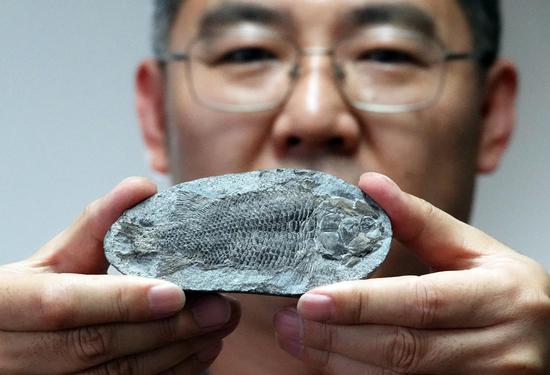The first new treatment for Alzheimer's disease in two decades fully approved by the United States Food and Drug Administration was prescribed for the first time on the Chinese mainland at Shanghai Huashan Hospital Affiliated with Fudan University on Wednesday.
Experts said Lecanemab, which was approved in the U.S. in January last year and in China this January, will provide more efficient and personalized treatment plans that are expected to benefit more people in the early phase of the disease.
The first batch of six patients aged between 55 and 75 and diagnosed with early-stage Alzheimer's at Huashan Hospital, which is home to the National Medical Center for Neurological Diseases, will receive an 18-month cycle of treatment with infusion of the drug twice a month.
Lecanemab is an intravenous antibody that targets and removes beta-amyloid — an amino acid that plays a central role in Alzheimer's — from the brain. For patients with early Alzheimer's, the therapy helps reduce cognitive and functional decline and allows them to have more time to participate in daily life and live independently.
Nearly 39 million people in China aged 60 and above have mild cognitive impairment and about 15 million suffer from dementia. They include 13 million with mild cognitive impairment originating from Alzheimer's and 9.83 million with dementia related to Alzheimer's, according to the China Alzheimer Report 2022 published in the journal General Psychiatry.
Data from the phase 3 clinical trial of Lecanemab, published in the New England Journal of Medicine at the end of 2022, showed that after 18 months of treatment, patients in the Lecanemab group exhibited 27 percent less decline in their cognitive and memory functions compared with the placebo group.
A simulation published in Neurology and Therapy in April last year showed that the combination of Lecanemab and a drug that inhibits a type of glycoprotein delayed the progression of Alzheimer's by an average of two to three years.
"After the new drug is put into use clinically, we'll launch a new clinical study at the hospital," said Yu Jintai, head of the division of cognitive disorders in the neurology department at Huashan Hospital. "We'll combine this new treatment and a symptom-improving drug to see if they can work to treat both the symptoms and the root cause of the disease to maximally benefit patients."
Yu's team led the development of the world's first international guidelines for evidence-based prevention of Alzheimer's in 2020. It pointed out that at least 40 percent of Alzheimer's onset can be prevented through 21 methods, including vascular risk factor control and a healthy lifestyle.


















































 京公网安备 11010202009201号
京公网安备 11010202009201号